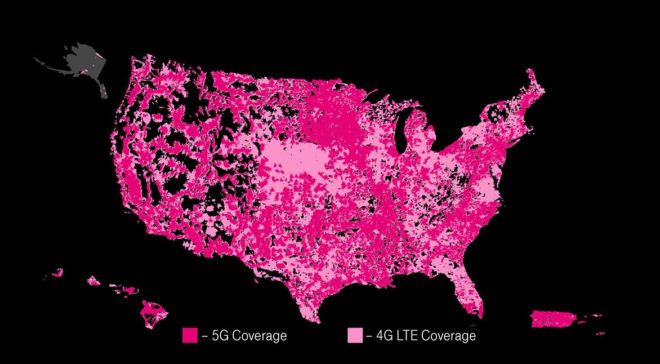T-Mobile and AT&T argue against FCC plan that would have them drive test their networks

T-Mobile this week argued against an FCC program that would have US carriers perform drive tests on their network to confirm their coverage.
In a filing with the FCC, T-Mobile said that drive tests are “extremely expensive and burdensome to conduct”, especially at the scale required to get a significant enough sample of a nationwide cellular network.
“A blanket requirement to perform regular on-the-ground testing will force providers to spend millions of dollars each year on tests, resources that would be better spent investing in our network and deployment in rural America,” T-Mo explained.
AT&T also came out against the FCC’s plans for carriers to drive test their own networks. The big blue carrier argued that the costs would be prohibitive, saying that it estimates that it’d cost $45 million every year to test 25% of the square kilometers of its nationwide 4G LTE network. Drive testing 10% of its network would cost up to $18 million per year, AT&T claimed.
“Requiring that all carriers conduct such nationwide drive tests, especially on a regular basis, is simply too costly especially at a time when investment in 5G deployment is a top national priority,” AT&T said in its filing.
This situation began last year when an FCC report said that US carriers had overstated their rural coverage. The FCC said it was unable to get an LTE signal on T-Mobile for 21% of its drive tests despite T-Mo reporting it had coverage in the area, and that T-Mobile’s network achieved the minimum download speeds predicted by coverage maps 63% of the time. Verizon and US Cellular had similar issues in the FCC report.
None of the carriers faced any punishment from the FCC following the report. However, last month the FCC submitted a plan as part of the Broadband DATA Act that would require US carriers to verify the accuracy of their coverage maps by performing on-the-ground tests.
The FCC says that these tests would include downlink, uplink, latency, and signal strength measurements. It would be required that the tests would be performed outdoors and they would include both mobile and stationary tests.
Via: Ars Technica
Sources: T-Mobile (FCC), AT&T (FCC)
